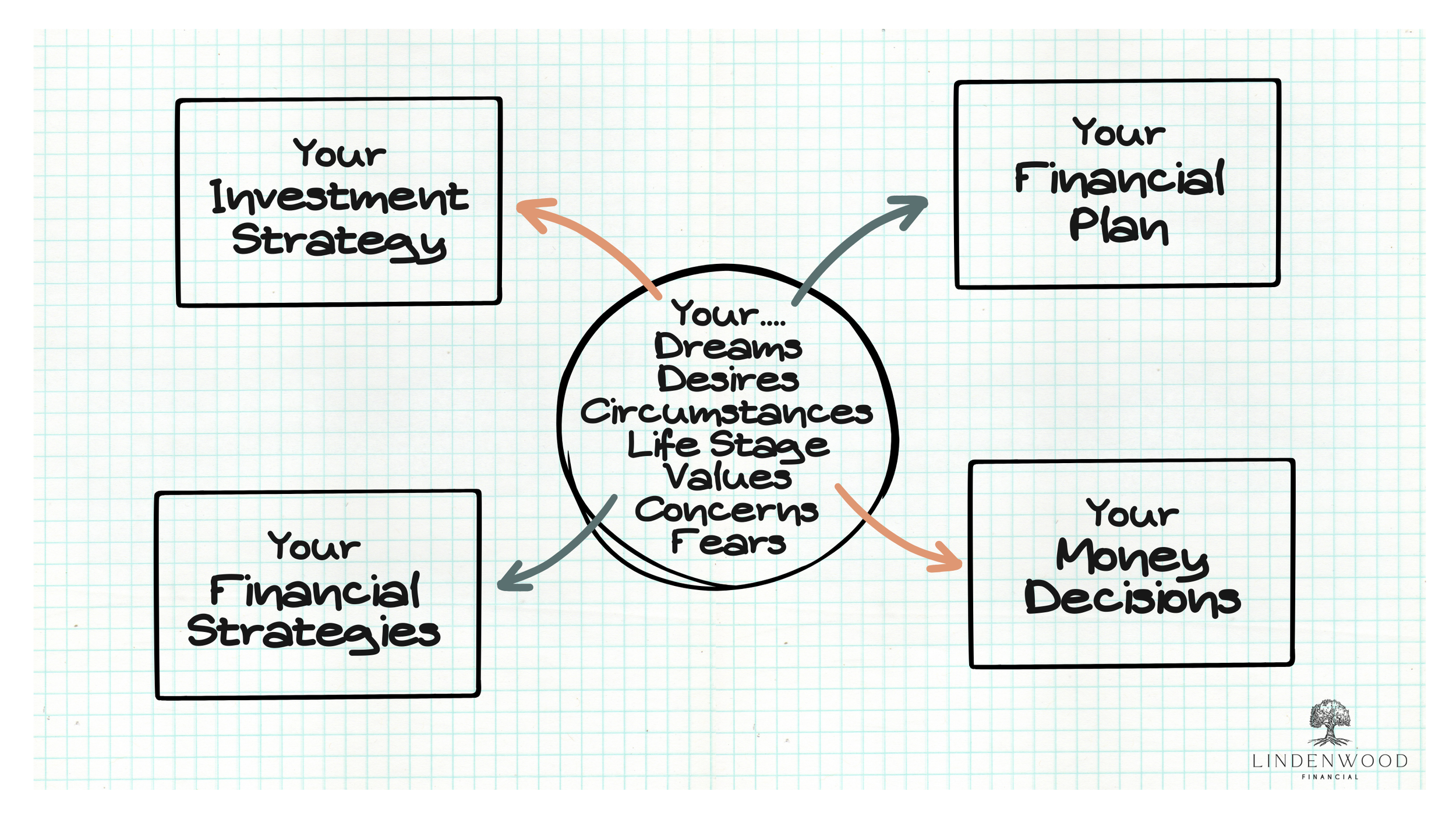One Size Doesn't Fit All: The Future of Finance is Personal
Personalized wealth management has YOU at the center of your customized investment strategy and financial plan.
We’ve come a long way from the days of your stockbroker friend calling about the latest “hot stock to jump on”. (Spoiler alert: a hefty sales commission was earned regardless of how the stock did.) That kind of financial advising was the norm, relying on our impulsive, fear-of-missing-out human nature.
In many ways, the financial industry has evolved for the better. Personalized, relationship-driven financial planning and wealth management has emerged, and it’s here to stay. The financial services industry continues to shift toward client-centricity, with a rise in technology, tools, and even advisor certifications like the CFP® designation, which prioritizes the uniqueness of client needs and the importance of comprehensive planning in key areas like investments, taxes, retirement, and more.
But, what does this personalization mean for you?
It means that you, your life, your family, your goals, your dreams, your concerns, and your circumstances are the foundation upon which your unique financial plan, personalized investment strategy, and custom-tailored financial strategies are built.
When it’s done correctly, you’ll follow a customized financial roadmap that is relevant, accurate, and achievable. Your money will be working toward what matters most to you and your loved ones. You’ll have a trusted professional by your side to help you make informed decisions that better your financial future.
In contrast, some advisors still rely on a "one-size-fits-all" approach, where every client gets similar advice: basic and generic financial recommendations, with limited customization, that are given regardless of goals, needs, concerns, or circumstances.
Here’s where it gets tricky: You can't judge a financial advisor's level of personalization based on appearances, company, experience, or advertising slogans promising personalized care. Adding to the confusion, fees don’t correlate to customization. (In other words, high fees do not equal high touch.)
So, how can you tell the difference? Check out our graphic to help:
Currently working with an advisor? One side may resonate with you more, and hopefully it’s the left. Don’t yet have an advisor? Keep these in mind when you’re hiring one.
The benefits of personalized planning are clear: empowerment to achieve your unique financial goals plus greater transparency, clarity, and trust in the services you’re getting for the cost you’re paying.
While this level of advising is gaining momentum, it's not the industry standard. That’s why it’s more important than ever to educate and empower yourself to choose the right advisor relationship. Why? So you can get on track toward your goals and spend your days enjoying life, not worrying about your money or who you’re paying to manage it.
Our next article shares 7 questions to ask your current advisor, or any new advisor you’re interviewing, to help you learn about their approach.


